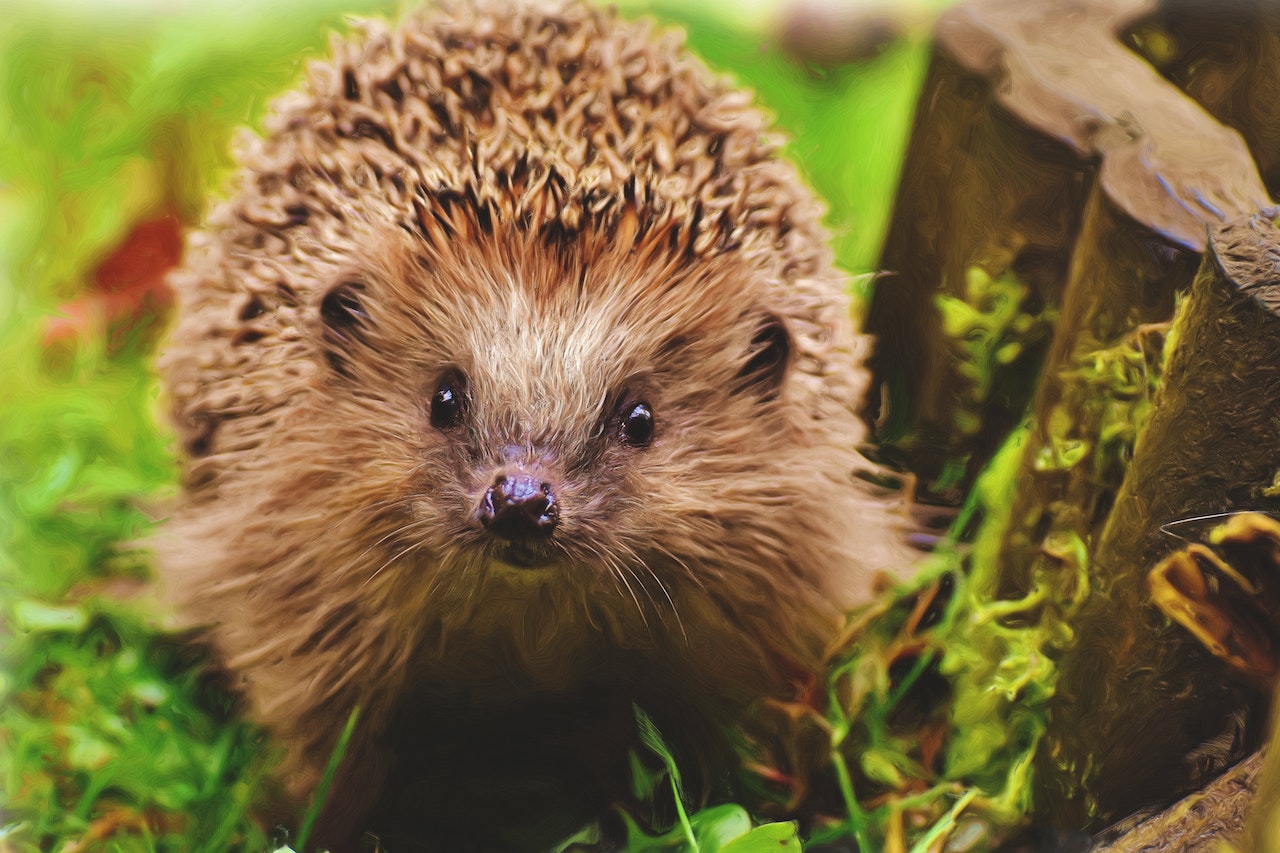Why Hedgehogs Make Great Pets: Everything You Need to Know
If you’re considering getting a new pet, you may be wondering what kind of animal would suit your lifestyle and preferences.
While dogs and cats are the most popular choices, there are plenty of other animals that can make great companions.
One of these animals is the hedgehog. Despite their prickly appearance, hedgehogs are charming creatures that can be wonderful pets for the right person.
In this article, we’ll explore why hedgehogs make great pets and what you need to know if you’re thinking of adopting one.
Key takeaways:
- Hedgehogs can make great pets for the right person.
- They are cute, low-maintenance, and relatively healthy animals that can provide companionship and entertainment.
- Hedgehogs require a specific diet that is high in protein and low in fat, and regular grooming to keep their spines clean and healthy.
- They require a cage that is spacious enough for them to move around in and includes hiding places, a wheel for exercise, and a cozy sleeping area.
- Hedgehogs can be social animals, but they can also be shy and easily stressed.
- It’s important to handle them gently and provide them with a safe and comfortable environment.
- Before adopting a hedgehog, it’s important to understand the specific care requirements and potential challenges of owning one.
- Laws regarding the ownership of hedgehogs vary by state and country, so it’s important to check with your local authorities before adopting one.
What is a hedgehog?
Hedgehogs are small, nocturnal mammals that are native to Europe, Asia, and Africa.
They are named for their habit of foraging through hedges and bushes for food. Hedgehogs are covered in spines, which help to protect them from predators.
They have a lifespan of 3-8 years and can weigh anywhere from 300 to 1200 grams, depending on the species.
The appeal of hedgehogs as pets
Hedgehogs have become increasingly popular as pets in recent years.
There are several reasons why these creatures are so appealing to pet owners. For one, they are very cute and have a distinctive appearance that sets them apart from other animals.
Additionally, hedgehogs are relatively low-maintenance pets, which makes them a good choice for busy people or those who live in smaller homes.
They are also quiet animals, which means they won’t disturb your neighbors or keep you up at night.
Pros and Cons of owning a hedgehog
While hedgehogs can make great pets, there are both pros and cons to consider before adopting one.
Pros
On the plus side, hedgehogs are low-maintenance animals that don’t require a lot of attention.
They are also relatively clean pets, as they are litter-trained and don’t have a strong odor.
Additionally, hedgehogs are generally very healthy animals, and they don’t require regular vaccinations or check-ups.
Cons
However, there are also some downsides to owning a hedgehog. For one, they are nocturnal animals, which means they are active at night and sleep during the day.
This can be a problem for some pet owners who prefer animals that are active during the day. Additionally, hedgehogs can be expensive pets to own, as they require specific housing and diet requirements.
Finally, hedgehogs are not always the best pets for children, as they are not always easy to handle and can be easily stressed.
What you need to know before getting a hedgehog
Before adopting a hedgehog, it’s important to understand what you’re getting into. Here are some key things to consider:
1. Hedgehog care and diet
Hedgehogs require a specific diet that is high in protein and low in fat.
They should be fed a mixture of high-quality cat food, insects, and vegetables.
In addition to their diet, hedgehogs also require regular grooming to keep their spines clean and healthy.
2. Hedgehog housing requirements
Hedgehogs require a specific type of housing that is large enough for them to move around in.
They should be kept in a cage that has plenty of hiding spots and toys to keep them entertained.
The floor area should be at least 2 feet by 3 feet (61 cm by 91 cm).
Since that hedgehogs can climb well, walls must be high enough to prevent escape.
For many owners, a cage with smooth sides or a glass tank is a viable option.
At least 30 gallons should make up an aquarium.
3. Socialization and bonding with your hedgehog
Hedgehogs can be social animals and enjoy spending time with their owners.
However, they can also be shy and easily stressed, so it’s important to handle them gently and provide them with a safe and comfortable environment.
It’s also important to give your hedgehog plenty of time to explore and play outside of their cage, under close supervision.
How to adopt a hedgehog
If you’ve decided that a hedgehog would be a good pet for you, the next step is to find a reputable breeder or rescue organization.
It’s important to do your research and make sure you’re getting a healthy and well-socialized hedgehog.
Make sure to ask the breeder or rescue organization about the hedgehog’s history and temperament, and take the time to get to know your new pet before bringing them home.
Conclusion
In conclusion, hedgehogs can make great pets for the right person.
They are cute, low-maintenance, and relatively healthy animals that can provide companionship and entertainment.
However, it’s important to understand the specific care requirements and potential challenges of owning a hedgehog before making the decision to adopt one.
With the right care and attention, a hedgehog can be a wonderful addition to your family.
FAQs
1. Are hedgehogs legal pets in my area?
Laws regarding the ownership of hedgehogs vary by state and country, so it’s important to check with your local authorities before adopting a hedgehog.
Some areas may require permits or prohibit hedgehogs as pets altogether.
2. Do hedgehogs need vaccinations?
Hedgehogs do not require vaccinations like cats and dogs do, but it’s still important to keep them healthy and free from illness.
Regular check-ups with a veterinarian experienced in exotic animal care are recommended.
3. What kind of housing do hedgehogs require?
Hedgehogs require a cage that is spacious enough for them to move around in and includes hiding places, a wheel for exercise, and a cozy sleeping area.
The cage should be lined with safe bedding, such as paper-based products, and cleaned regularly.
4. Can hedgehogs be litter-trained?
Yes, hedgehogs can be litter-trained using a shallow litter box filled with paper-based bedding.
It’s important to regularly clean the litter box to prevent odors and maintain hygiene.
How do I handle my hedgehog without getting poked?
Hedgehogs have quills for protection, but they can be handled without getting poked by using a gentle and slow approach.
It’s important to let your hedgehog get used to your scent and touch, and to avoid sudden movements or loud noises that may startle them.
It’s also recommended to wear gloves or use a soft blanket or towel to handle your hedgehog.
Peter Stones is the founder of Exotic Pets Place, the leading online resource for exotic pet care information.
With over 10 years of hands-on exotic pet ownership experience, he is deeply passionate about sharing his expertise to help others properly care for their unusual pets.
When he's not writing extensively researched articles or connecting with fellow exotic pet enthusiasts worldwide, you can find Peter at home tending to his own beloved menagerie of exotic animals.


![Exotic Small Mammals Nutritional Guide [Your Ultimate Resource], two guinea pigs eating veggies](https://exoticpetsplace.com/wp-content/uploads/2023/06/Exotic-Small-Mammals-Nutritional-Guide-Your-Ultimate-Resource-two-guinea-pigs-eating-veggies-768x529.jpg)



![Creating the Perfect Aquarium for Exotic Aquatic Pets [Full Guide], a girl looking at a fish tank](https://exoticpetsplace.com/wp-content/uploads/2023/06/Creating-the-Perfect-Aquarium-for-Exotic-Aquatic-Pets-Full-Guide-a-girl-looking-at-a-fish-tank-768x512.jpg)
